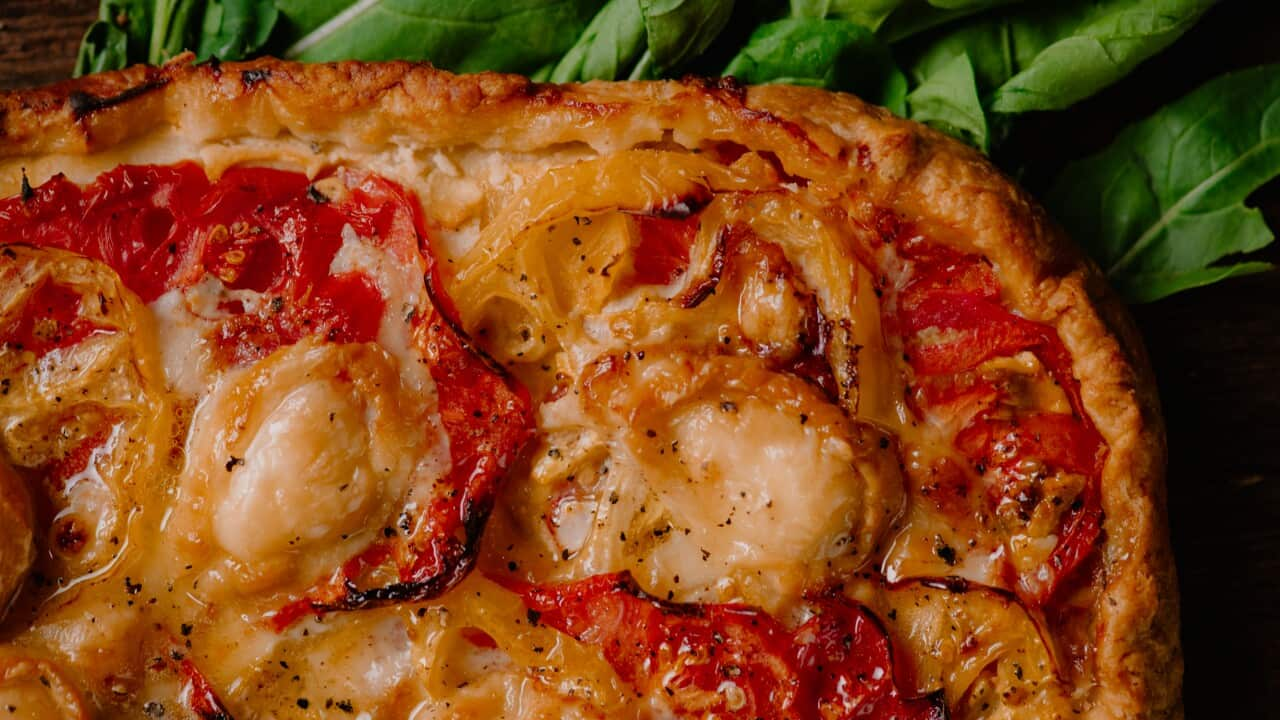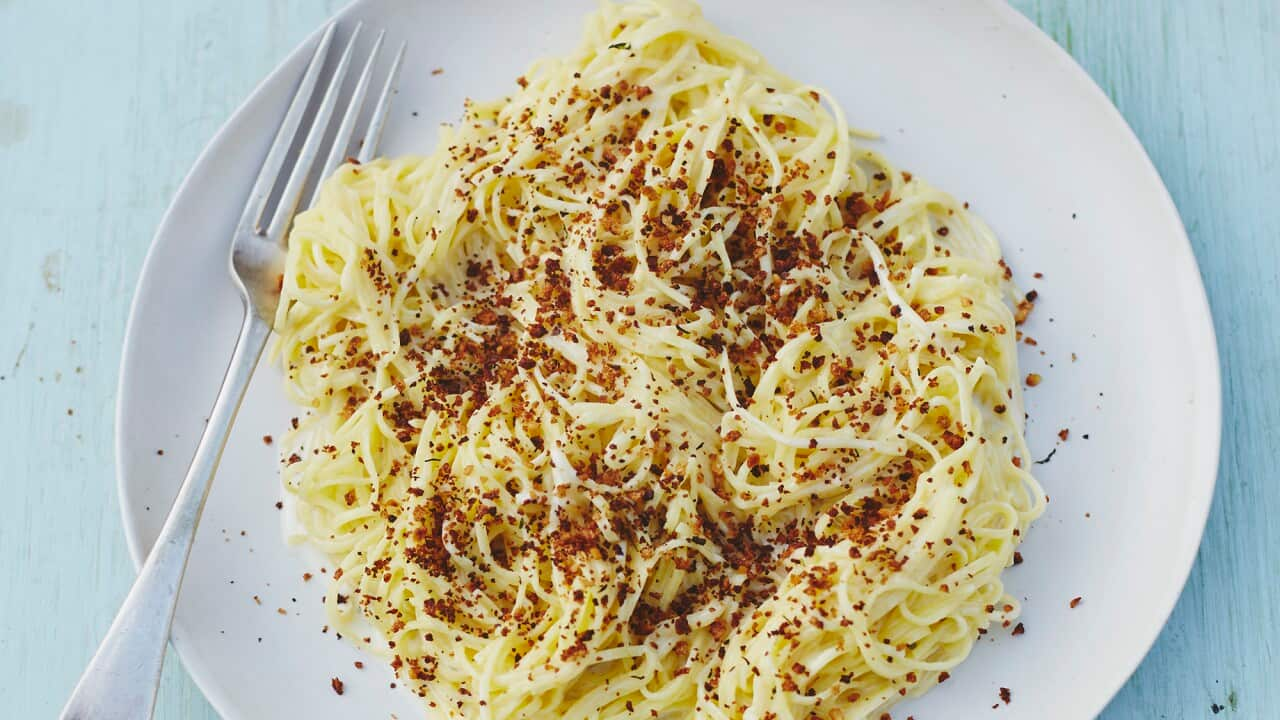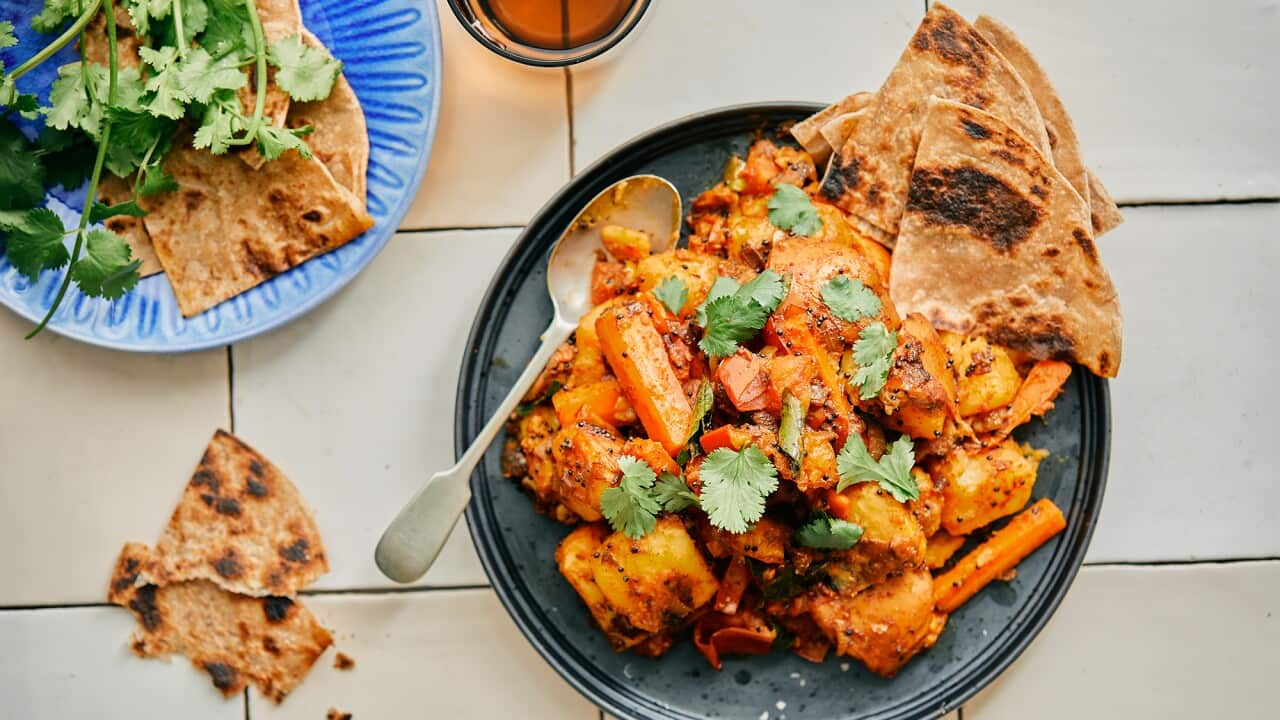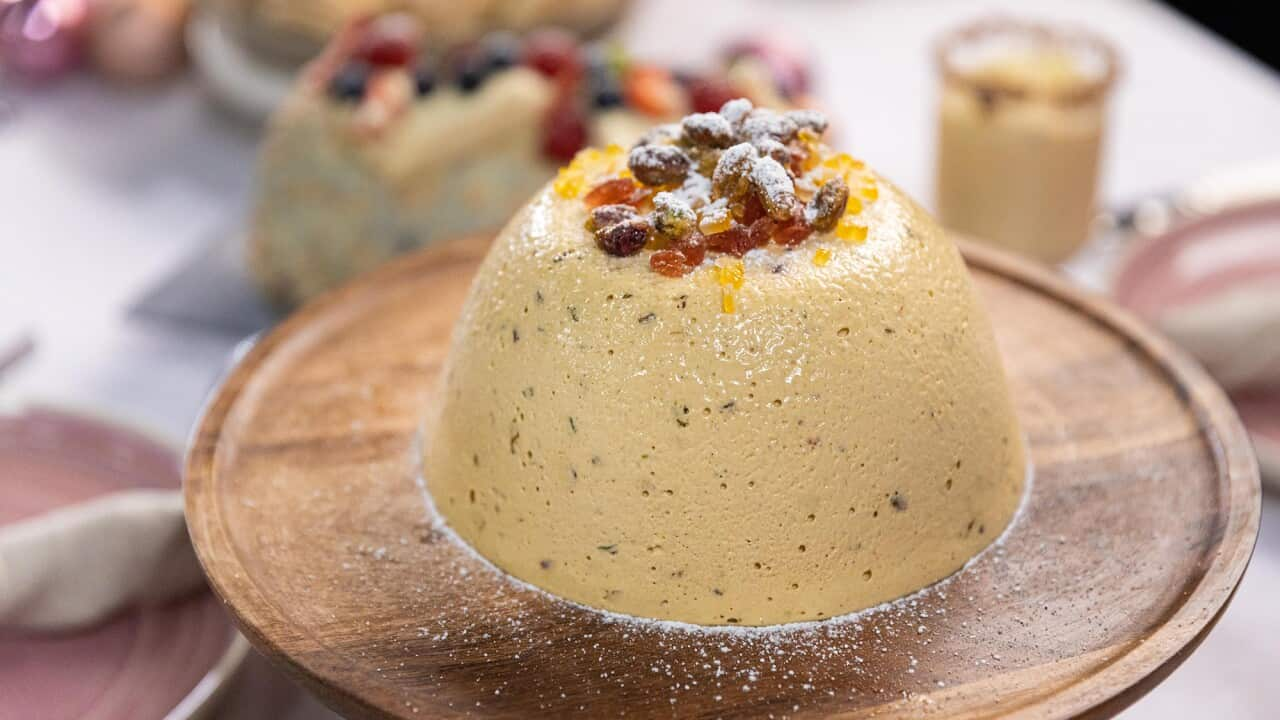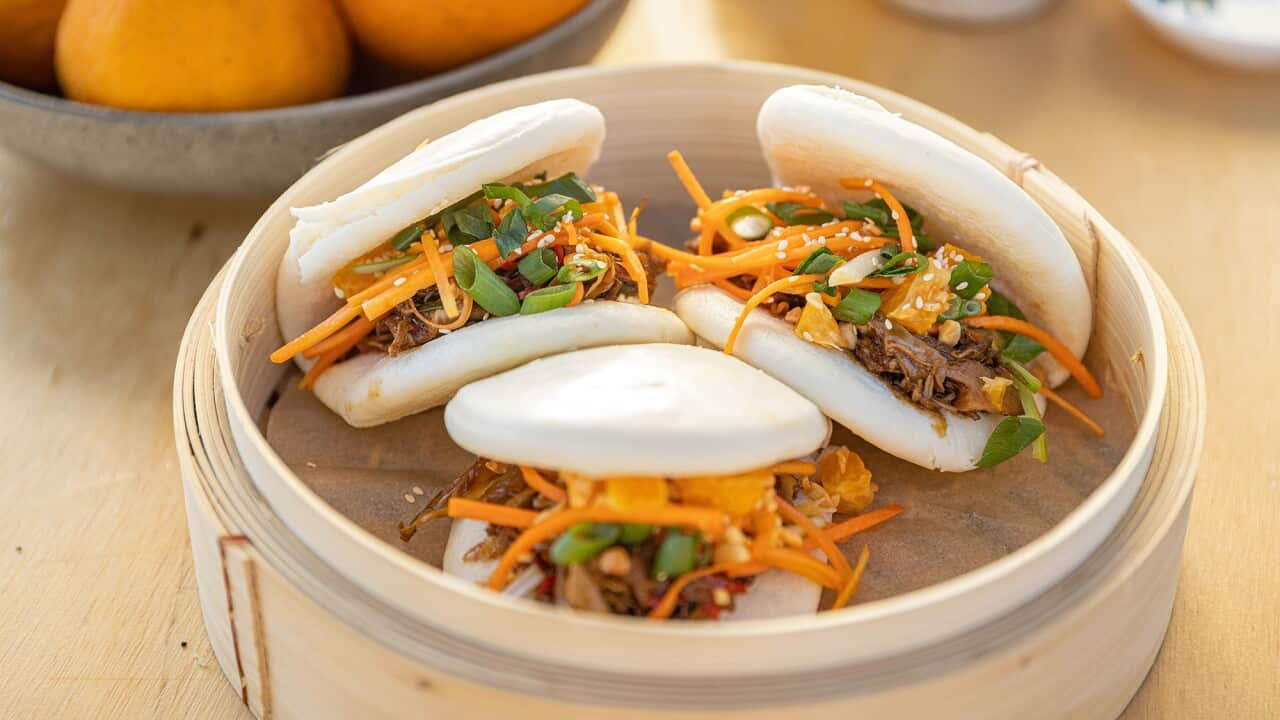serves
8
prep
10 minutes
cook
20 minutes
difficulty
Easy
serves
8
people
preparation
10
minutes
cooking
20
minutes
difficulty
Easy
level
Ingredients
- 125 g unsalted butter, cubed
- 210 g plain flour
- Sea salt flakes
- 1 egg
- 25 ml cold water
- 30 g rocket leaves, to serve
- Extra virgin olive oil, to serve
For the filling
- 60 g Dijon mustard
- 500 g - 1 kg mixed heirloom tomatoes, thinly sliced
- Sea salt flakes and black pepper
- 100 g goat’s cheese of your choice
Chilling time 30 minutes
Instructions
- To make the pastry, in a large mixing bowl, use your fingers to crumble the butter into the flour with a generous pinch of sea salt, until it resembles coarse breadcrumbs. Make a well in the centre, then add the egg and water and mix to combine into a dough. Do not over-handle the pastry, for the best results. Wrap the pastry in plastic wrap and chill for 30 minutes, or overnight.
- When ready to bake, preheat the oven to 210°C (190˚C fan-forced). Line a 40 cm x 32 cm baking tray with baking paper. Divide the pastry in half and on a work surface, roll out to 40 x 20 cm rectangle. Repeat with the remaining pastry and carefully transfer to the lined baking tray. Fold over the edges of each rectangle to make a decorative border.
- For the filling, spread each pastry rectangle with mustard, then cover with an overlapping pattern of sliced tomatoes. Sprinkle with salt and pepper, then crumble (or slice and layer) your goat’s cheese on top.
- Bake on the top shelf of the oven for 20 minutes, or until golden brown. Transfer to a wire rack and allow to cool.
- Lightly dress the rocket with a drizzle of extra virgin olive oil and a pinch of salt and pepper and serve with the Gascon tomato tart.
Note
- You can serve this tart whole on a large platter, or cut into individual serving pieces.
Photography by Jiwon Kim.
Want more from The Cook Up? Stream all the seasons here and for free at
Cook's Notes
Oven temperatures are for conventional; if using fan-forced (convection), reduce the temperature by 20˚C. | We use Australian tablespoons and cups: 1 teaspoon equals 5 ml; 1 tablespoon equals 20 ml; 1 cup equals 250 ml. | All herbs are fresh (unless specified) and cups are lightly packed. | All vegetables are medium size and peeled, unless specified. | All eggs are 55-60 g, unless specified.

